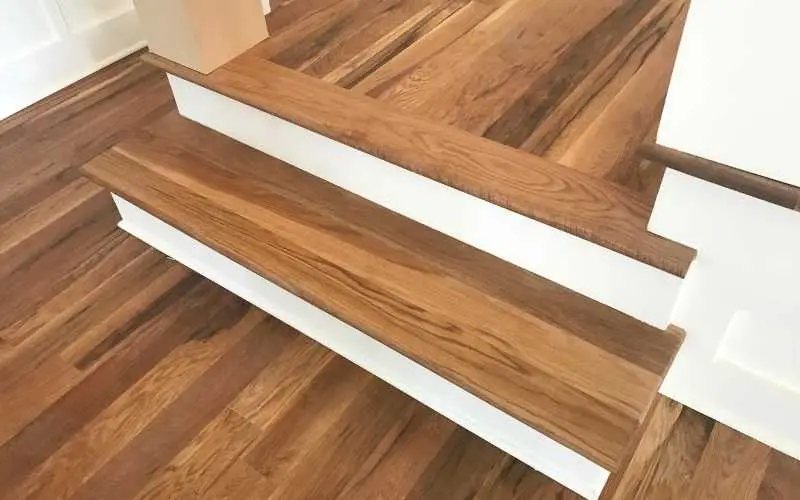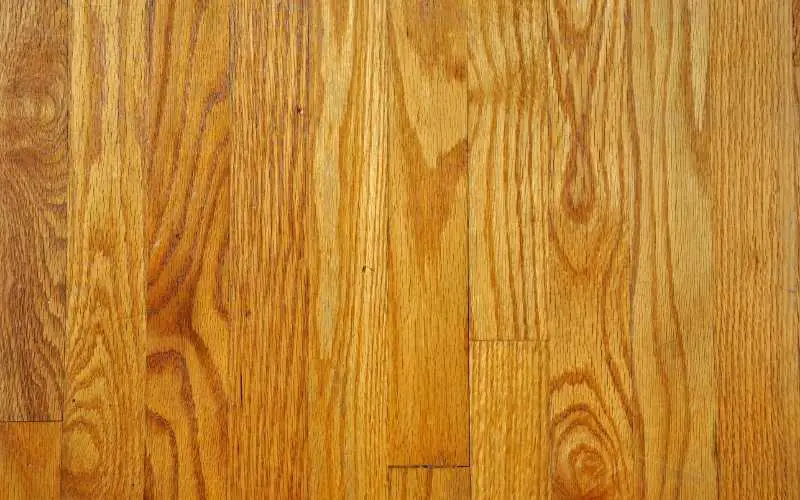Most people wonder: Is Aspen a Hardwood? The answer to this question is fully discussed in this article.
Aspen wood may be more complicated than any softwood, but it is moderately softer than most hardwoods. So the question is: “Is Aspen a Hardwood” is not out of place.
Is Aspen a hardwood? Yes, even though Aspen wood is not as hard as Oak, Maple, and Cherry woods and has a hardness rating of 420 lbf (1,868 N) which is lower than most hardwoods, it is still considered a hardwood.
Read on as we throw more light on this.
Related: Natural Vs. Stained Hardwood Floors
Is Aspen a Hardwood?
Table of Contents
As earlier stated, Aspen is considered hardwood even though it has a hardness rating that is less than that of most hardwood.
The Aspen wood has milky white sapwood with heartwood that varies from brown to greyish white without any apparent transformation.
This wood specie has a very little quantity of toughness, which is why it is confused with soft hardwood, even though it belongs to the hardwood division.
Aspen wood has a high rate of strength, the same as high-grade hardwoods. But when likened to toughness and thickness, they are almost lower than those hardwoods because of their soft and evenly feeling.
However, Aspen woods are Limited and rarely accessible in thick stock. In terms of the feeling or nature of this wood, its grain is okay with a diluted opening. Aspen wood is good and can also be used for molding, toys, caskets, e.t.c
Main Uses of Aspen Wood
Aspen wood is mainly used for furniture parts (drawer sides, cupboard sides), doors, molding, picture frames, millwork, toys, kitchen utensils, and matchsticks.
Due to its low heat application, Aspen wood can also be used in Specialized cases like making sauna laths.
Aspen wood is light and soft, also straight and fine. It can be used for figure usage owing to its bright white color.
It has good planning and rolling conduct, good confinement tightened, and resistance to splitting. It is moderately easy to glue and finishes nicely.
Types of Aspen Wood
There are 2 main types of Aspen, and they include,
1. Bigtooth Aspen wood (Populist grandidentata)
2. Quaking aspen (Populist tremuloides)
Others include, Populus adenopoda, Populus davidiana, Populus sieboldii, Populus tremula.
All breeds of Aspen wood have almost the same amount of toughness level, and their only difference comes in the shape of the leaves and heights of trees.
What Are the Characteristics of Aspen Wood?
Aspen wood is a soft hardwood, and it has many deformities; concentration is needed when using it for framings, such as joists, studding, and rafters.
The curving capacity of Aspen wood is good in joists, beams, and rafters. The low capacity of Aspen wood gives many issues when used for outdoor furniture because it’s not weather friendly and can rot away quickly when water comes in contact with it.
Aspen wood is light brown straight grain wood with average feeling and native shine. Sapwood is pale yellow and almost white. It has a diluted penetrable format, evenly placed all over the wood.
Distances between Aspen tissue are close, and the thickness is high, unlike the softwoods. Aspen wood is known to be hardwood; it doesn’t last long. Furniture made with Aspen does not last long.
It will spoil quickly if a proper finishing is not done. It is delicate and may get damaged easily due to insect attacks.
If Aspen wood is not protected from scratches and dents, water will get into it, and the wood will rot away quickly. It is advisable not to use this type of wood for wet areas like the bathroom or around the pool areas.
Aspen wood has other good qualities that can be easily applied to any woodworking project. These qualities of Aspen wood include,
- Soft hardwood
- Lightweight
- Soft
- Easy to finish
- Cuts easily
- Good Machinability
Aspen wood is easy to cut because of its softness and is easy to work with, even for a starter in the usage of woods. It splits easily.
Aspen wood is a soft hardwood with less toughness and thickness too. Aspen wood has better stability than almost all other woods. That’s the specialty of aspen wood.
Aspen is less prone to addition and shrinkage when climate and humidity change in its surroundings and is less likely to warp, cup, or crown.
Always consider that an aspen hardwood floor can move after it has been fixed, certainly.
All wood floors would certainly move; it’s advisable not to fix them where they are affected by the changes in the surroundings, which involves surpassing humidity levels.
Yet, Aspen excels in cold and moderate atmospheres in North America, northern Europe, and Asia as a breed due to its natural capacity, if not due to its toughness.
Patterns also vary in hardwood flooring as it involves delicate grain patterns; this is a stylistic element for hardwood floors, and it also adds much visual value.
It’s beautiful when created on a hardwood floor, as it also involves accurate patterning.
Read: How to Remove Rug Pads Marks From Hardwood Floors
Advantages of using Aspen Wood
Here are some of the advantages of using Aspen wood for your woodwork projects.
1. It Is Cost-Effective
Hardwood is commonly more expensive than softwood. Regardless of it being a hardwood, Aspen is relatively inexpensive compared to other hardwood breeds. The amount of an Aspen wood plank depends on its thickness and length.
2. It Can Absorb Stain
Most breeds of hardwood have an issue when it comes to absorbing paint very well. Meanwhile, Aspen wood absorbs paint and stains very well.
You can predict the paint to last for a minimum of four years on Aspen wood at least before considering another need for a new paint job.
3. Withstands Nailing and Screwing Well
Aspen is known to be a soft hardwood, but it does withstand nailing and screwing without dividing.
You don’t have to exasperate about the wood division when installing Aspen to the subfloor, even with more giant nails. Also, it is easy to mold Aspen wood to the way your heart desires.
4. Maintains Capacity/Stability
Maximum hardwoods are familiar with decreasing or expanding, conforming to the climates at a given time. Meanwhile, Aspen maintains stability and capacity despite climate changes.
5. Works Well with Glue
Aspen wood works well with Glue. It would be best not to bother whether the aspen wood would bond well with the Glue.
Aspen bonds well with different types of wood glues. However, water might be considered when using water-based Glue on aspen wood to evade the adhesive parching sooner.
6. Less Inflammable
Flammability is how quickly an item can catch fire. When likened to other hardwood breeds, Aspen has less flammability.
Disadvantages of Aspen Wood
Despite all the pros listed earlier, the Aspen wood has some downsides you need to know.
1. Accessibility Problem
Aspen wood is not immediately accessible. That is why it doesn’t always come as a first choice for woodwork. Even when seen, it’s generally not easy to resolve the nature of the wood since Aspen is not pitched.
2. Stains Haphazardly
When used on an uneven subfloor, Aspen soaks stains haphazardly. However, this can be resolved by equipping the subfloor by sanding it before stains or administering the paint. Also, don’t forget to wash wool before staining.
3. Long-Lasting Issues
Most hardwoods are known to last longer and are durable for a long time. Aspen isn’t as durable as other hardwood and doesn’t last long.
The lifespan of the aspen wood is a little over five years. If you need wood that can contain years and years of wear and tear, Aspen should not be an option.
Read: Do You Need to Seal Hardwood?
Conclusion
We wrote this article about shiplap is Aspen a hardwood to not only help give you guidance when faced with making a choice about it but also its characteristics, advantages, and disadvantages.
We hope you found it helpful and informative. If you did, please share it across your entire social media pages.

